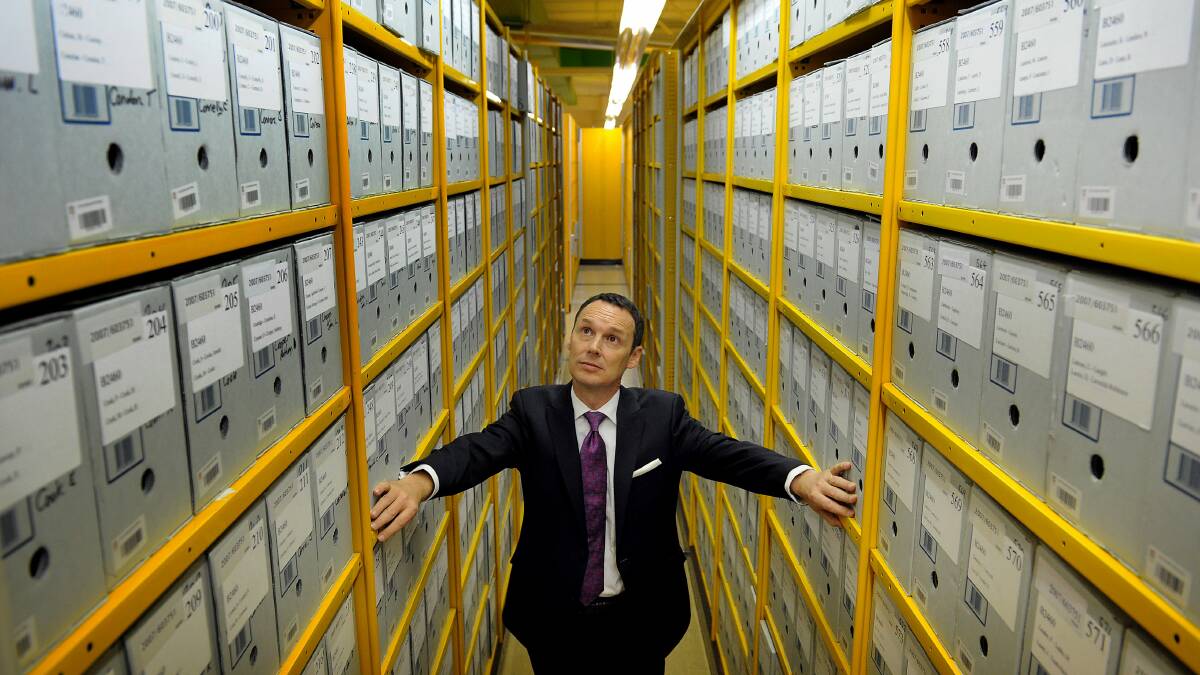Nearly 200,000 hours of recordings containing Australia's memory are at risk under a looming six-year deadline to save the National Archives' vulnerable files, its director-general says.
Subscribe now for unlimited access.
or signup to continue reading
David Fricker issued the warning about the nation's ageing historical recordings after the federal government started an independent review of the agency's needs.
The review, led by former Finance Department secretary David Tune, follows years of pressure on the National Archives of Australia in the face of budget cuts, downsizing and increasing demand.

Mr Fricker said the inquiry, due to report to the government in August, would look at the archives' pressures and recommend measures equipping it for its role preserving and releasing files shedding new light on Australia's history.
The archives had 190,000 hours of at-risk records that would be lost permanently as magnetic tapes decayed, machines playing them back became unavailable, and expertise in repairing that machinery dwindled, he said.
"If we lose that tape, we've lost that forever. It's not something you can rebuild, it's not something you can recreate, it will be gone, erased from our national memory," Mr Fricker said.
Among files at risk were ASIO surveillance material, scientific research and Indigenous language recordings.
"These are important, unique records, that define who we are as Australia, who we are as a national identity, which are at risk of being lost if we can't preserve them."
Both the National Archives, and the National Film and Sound Archive, are racing to duplicate recordings stored on magnetic tape as a 2025 deadline for obsolescence approaches.
The National Archives has copped years of annual funding cuts applying across the federal public service through efficiency dividends, and has been undermined by reduced staffing.
Mr Tune's review was announced on April 2 after the government began considering the agency's resourcing following advice from the archives about risks to the level of service it could provide, and threats to parts of its collection.
Delays in releasing files requested by researchers are among questions for the inquiry, as could be a new building to share records more with visitors, part of Mr Fricker's wish list.
"As beautiful and lovely as East Block is, it's a 1927 building constructed for the administrative activities of the public service, it's not really a building which is well suited to school groups, the general public, major events coming to the national capital to discover and engage with, and become excited by, the national collections that we have."
The director-general said other parts of the National Archives' collection, including photographic negatives and delicate material, needed preservation treatment to keep them accessible.
Welcoming the independent review, Mr Fricker admitted he was concerned about the agency's capacity to make available to future generations the evidence of the Commonwealth government's actions, information that could change understanding of history.
Australians wanted to access records about their past through digital channels, he said.
"When I think about what the archives has to be today and looking ahead, we need to reset, we need to recalibrate the things we do and the way we do it to properly meet the expectations of Australia."


